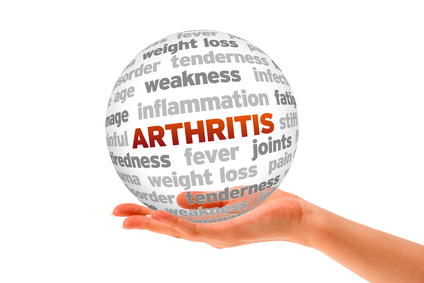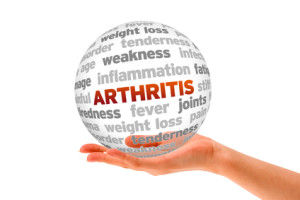Wow! That Anxiety Looks Good on You!
To my dear friend in the locker room, you know who you are:
 Thank you for being so honest. Your honesty brought up a topic that many people might have already touched on or made themselves aware of, but yesterday I saw another “twist.” Here is how it started:
Thank you for being so honest. Your honesty brought up a topic that many people might have already touched on or made themselves aware of, but yesterday I saw another “twist.” Here is how it started:
There is a woman whom I have known for a while, first as a co-worker at the gym/my work and now as a devoted and loyal member of the gym. She has a full-time job and a little boy. On the days that I show up to work at 10:30am, she is always there in the locker room getting ready for work after she has finished her workout or fitness class. We are both running around at that point, but we smile or wave to each other, or sometimes not. Yesterday I came in at 10:30 and she was dressed and ready to leave. I smiled at her but had to do a double take. She was wearing a cute sleeveless top and her body looked soooo strong and fit. Her arms were toned with amazing muscle and the definition in her muscle looked great. I turned to her again and told her how strong and fit she looked, and that I always notice that she is there all the time and working very hard in the gym and it shows. She turned to me and said, “Thank you so much but let me tell you, I do this way more for my mental and emotional health than to look a certain way.”
And I just looked at her and said, “Isn’t that the truth??? I just went through the weekend with a massive amount of anxiety. There was not a specific reason for the anxiety, I have had it my whole life and some days it is worse than others. I remember being in the car and on the way to the gym thinking that I couldn’t get there fast enough. I knew that the only way for me to snap out of this and not let it ruin my weekend was to go to the gym and workout or go outside and jump rope. For me, putting on my music and moving my body is my form of escape,  release, meditation, whatever you want to call it. This also forces me to BREATHE deeply, which I think has more benefits to our minds than we can ever know. And just being in my own head space with my music, my movement and my breathing is what releases at least 50% of my anxiety. The workouts help me release some of the negative chaos in my head and body.”
release, meditation, whatever you want to call it. This also forces me to BREATHE deeply, which I think has more benefits to our minds than we can ever know. And just being in my own head space with my music, my movement and my breathing is what releases at least 50% of my anxiety. The workouts help me release some of the negative chaos in my head and body.”
We had a good laugh at this because we both agreed that we find the “calm” we need through our workouts, and how awesome is it that the benefit of the chaos in our head looks great on our bodies! I actually said that out loud and it stopped me in my tracks. If we take a positive spin on anxiety, depression, anger, sadness, etc. and instead of looking at all the negative effects it has on our life, we can “twist” that statement to say, what are the benefits to having some of these issues? I have always needed to release my anxiety through exercise in order to get through the day, I now have added a tag line to that: My anxiety has shaped my body and has made me strong. The glass is now half full.
Deborah Stern has a degree in psychology/nutrition from DePaul University in Chicago, IL. She has been dedicated to helping women, men and children of all ages and all fitness levels in improving their lives through exercise, nutrition and personal growth. Deborah started early in life on this journey for herself and has been taking her clients on the journey for the past 25 years. Visit her website at foodprintforlife.com, and her blog at debapproved.blogspot.com.



 What is Arthritis?
What is Arthritis? Weight/Resistance Training
Weight/Resistance Training
 The PHIT Act (Personal Health Investment Today) H.R. 1218 (U.S. House of Representatives) & S.2218 (U.S. Senate) is pending legislation that expands the IRS definition of a medical expense to include physical activity as a form of prevention. The practical impact of this definitional change would allow consumers to use their pre-tax medical accounts (HSAs & FSAs) on physical activity expenses to promote healthy lifestyles. The PHIT Act is an innovative concept that helps address two major Congressional concerns: (1) rising health care costs (2) the budget deficit. The rise in sedentary lifestyles is a major contributor to higher obesity rates and an increased incidence of expensive, preventable chronic illnesses. The PHIT Act will help reverse the ‘Inactivity Pandemic’ by providing an economic incentive to invest in physical activity. If enacted, physical activity expenses could be reimbursed using money in pre-tax medical accounts.
The PHIT Act (Personal Health Investment Today) H.R. 1218 (U.S. House of Representatives) & S.2218 (U.S. Senate) is pending legislation that expands the IRS definition of a medical expense to include physical activity as a form of prevention. The practical impact of this definitional change would allow consumers to use their pre-tax medical accounts (HSAs & FSAs) on physical activity expenses to promote healthy lifestyles. The PHIT Act is an innovative concept that helps address two major Congressional concerns: (1) rising health care costs (2) the budget deficit. The rise in sedentary lifestyles is a major contributor to higher obesity rates and an increased incidence of expensive, preventable chronic illnesses. The PHIT Act will help reverse the ‘Inactivity Pandemic’ by providing an economic incentive to invest in physical activity. If enacted, physical activity expenses could be reimbursed using money in pre-tax medical accounts. HOW WOULD THE PHIT ACT WORK?
HOW WOULD THE PHIT ACT WORK?

 Food is fuel and food is medicine. Food brings people together and is supposed to be one of life’s pleasures. Shared meals are a vehicle for building relationships, enjoying conversations, and nourishing the soul.
Food is fuel and food is medicine. Food brings people together and is supposed to be one of life’s pleasures. Shared meals are a vehicle for building relationships, enjoying conversations, and nourishing the soul. Healthy diet vs. A single ingredient
Healthy diet vs. A single ingredient
 Exercise duration during pregnancy should reflect a woman’s current level of fitness and the type of activity she is doing. If you’re working with someone who’s just starting a prenatal exercise program the duration will be shorter (15-20 minutes) and progress slowly over time to 30-60 minutes. A pregnant woman who is already taking part in a fitness routine can continue with her current duration level, but exercise duration should be modified as needed to enable her to achieve a moderate to somewhat hard level of intensity without discomfort or undue fatigue.
Exercise duration during pregnancy should reflect a woman’s current level of fitness and the type of activity she is doing. If you’re working with someone who’s just starting a prenatal exercise program the duration will be shorter (15-20 minutes) and progress slowly over time to 30-60 minutes. A pregnant woman who is already taking part in a fitness routine can continue with her current duration level, but exercise duration should be modified as needed to enable her to achieve a moderate to somewhat hard level of intensity without discomfort or undue fatigue.
 Question: What is the danger of health-related technologies in the hands of the general public?
Question: What is the danger of health-related technologies in the hands of the general public?
 Why Exercise is Good
Why Exercise is Good Doing your exercises right
Doing your exercises right

 In summary
In summary